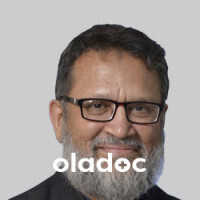Surgery for Crohn’s disease, a chronic condition that causes inflammation, sores, and ulcers in the small intestine, is generally a last resort treatment. Yet, according to the Crohn’s and Colitis Foundation nearly 75% of Crohn’s sufferers eventually undergo at least one surgery for symptom relief when medications become ineffective. Here are some commonly employed surgical options for treating Crohn’s disease, and when it might be a good idea to get one by a comeptent gastroenterologist.
Table of Contents
1-Bowel Resection:
A resection involves removing the diseased portion of the intestine and sewing together the healthy sections for long-term symptom relief. It can also widen narrowed sections of the intestine due to scarring, particularly when the constriction is very long or present at multiple sites. The procedure can also correct a fistula (an abnormal tunnel between the intestine and another organ) that is unresponsive to medication.
2-Stricturoplasty:
A Stricturoplasty works in the same way as a bowel resection to widen narrowed portions of the small intestine. However, no part of the intestine is removed during the surgery, which is why a bowel resection often accompanies the procedure.
3-Ostomy:
Performed as a companion procedure to surgical intestine/bowel removal, an osteotomy involves creating a hole, or ‘stoma’, in the body as an alternative waste removal route. Known as ‘ileostomy’ when performed on the small intestine and ‘colostomy’ when performed with large intestine removal, osteotomies are generally reversible.
4-Colectomy:
Diseased sections of the colon (the main part of the large intestine) are removed during this procedure, although a severely infected or damaged colon may to be removed entirely. Following a colectomy, the small intestine is directly connected to the rectum to retain normal stool-passing function.
5-Proctocolectomy:
Both the colon and rectum are removed completely in case of severe infection and damage. This is the followed by directly connecting the small intestine to a bag attached outside the body for waste removal via a hole or stoma in the belly. Patients will have to permanently wear and empty the bag multiple times a day following a proctocolectomy. However, the bag remains concealed under clothing at all times.
Laparoscopy:
Crohn’s surgery previously involved large cuts in the abdomen that took 6 weeks to heal and caused excruciating pain. However, the above procedures have improved greatly with the introduction of laparoscopy: a surgical technique that employs only minimal incisions along with special cameras and instruments. This not only makes surgery easier and reduces recovery time to 1 week, but also minimises the chances of infection and other surgical complications.
When Is It Needed?
Although most patients opt for surgery to relieve their symptoms, urgent surgical attention may be required in the following cases:
- A fistula
- A hole in the bowel
- Uncontrolled bleeding in the gut
- Cancerous tissue or tumor in the colon
- An abscess (pus-filled cavity) near the anus
- Intestinal blockage due to excess scar formation
- Medications are either ineffective or have severe side-effects
- Toxic megacolon (severe stretching of the intestine that causes the intestinal toxins to enter the bloodstream and spread throughout the body)
- Hardening of the affected areas due to scarring created by continuous inflammation and repair. These hardened bowel sections cause abdominal pain while eating, intermittent vomiting, and distention (abdominal swelling)
Note: Laparoscopy may not be an option for individuals with scar tissue in their belly or who have had multiple previous surgeries.
Keeping Expectations Real:
Surgery for Crohn’s can greatly improve overall life-quality by providing long-term symptom relief for months or even years, and induce a temporary halt on Crohn’s medication, in some cases, but it is not a permanent solution.
Most people require a second surgery, since inflammation and damage can recur in other, previously healthy parts of the intestine. Specialized medication, particularly immunomodulators that alter immune system responses and inflammation-reducing 5-aminosalicylic acids, can greatly reduce the risk of a recurrence.
Also, since most patients require multiple surgeries, the surgeons try to remove as little of the intestine as possible with every procedure to ensure that it does not drastically alter daily-life activities.
Ongoing surgical innovations have greatly reduced the risk of developing otherwise debilitating surgical complications. However, contact your doctor immediately if you observe abdominal swelling, confusion, blood in the stool, persistent pain, shortness of breath, inability to eat or drink, chest pain, and signs of infection at the surgery site. You can also book an appointment with a top Gastroenterologist in Lahore, Karachi and Islamabad through oladoc.com, or call our helpline at 042-3890-0939 for assistance to find the RIGHT Doctor for your gastric concerns.















